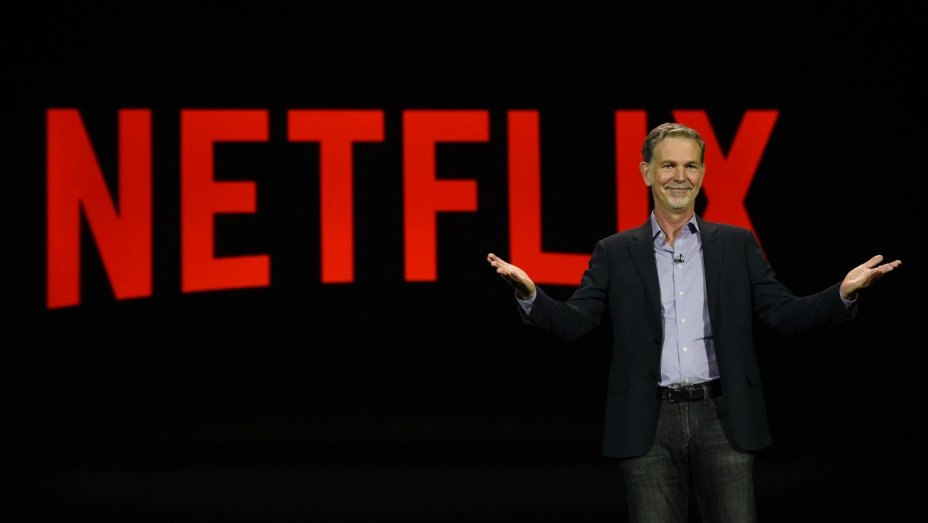Cannes Film Festival Declares War on Netflix

CANNES: Cannes opened on a hot sunny day with the French film ‘Ismael’s Ghosts’ directed by Arnaud Desplechin (this year there is a considerable emphasis on films from France). The packed press screening was met with a tight-lipped, icy silence, which carried over to its tepid press conference held shortly after.
‘Ismael’s Ghosts’ is fraught with exaggerated histrionics on most levels—a narrative that runs away with itself on a complicated mix of a thin spy story linked to drama and emotion. It follows in the main the story of an ageing, tormented father (a former respected film director) pining for his daughter, and a younger film director trying to complete the film he is directing, while two women flail themselves as they fight over him. There is a hint of the supernatural as well. India plays a role by providing spiritual sustenance to one of the young women, who is presumed dead but is reincarnated decades later.
However, the opening day's second Press Conference with the International Jury, normally a tame affair with polite statements emanating all round, suddenly turned a bit explosive over the Netflix issue. The latter is a sore point that has shadowed the Cannes selection this year. French distributors have protested against the inclusion of two Netflix films in competition, Bong Joon-Ho's ‘Okja’ and Noah Baumbach’s “The Meyerowitz Stories’ (there is also an Amazon film, ‘Wonderstruck”).
Netflix until very recently has not premiered its films in theatres in France. Getting the competition spotlight in Cannes made theatre owners feel betrayed over their prime role and also their source of earning. Cannes management then issued a statement that next year onwards, Netflix will have to assure theatrical premieres in order to participate. With that, a truce seemed to have been arrived at. The case was closed, at least for now.
However, the Jury President, Pedro Almodóvar, jolted the media with his prepared speech, saying at length how the film industry is tense with new players like Netflix that don’t always premiere films in theatres. He said, "I personally do not conceive, not only the Palme d’Or, any other prize being given to a film and not being able to see this film on a big screen”, which suggests that even ahead of judging the selection, the Netflix films might be out of the running for the awards.
Almodóvar also said, “All this doesn’t mean I’m not open to or don’t celebrate the new technologies. I do.” But he added, “I’ll be fighting for one thing that I’m afraid the new generation is not aware of…It’s the capacity of the hypnosis of the large screen for the viewer.”
The irrepressible and jocular American actor Will Smith, who had his audience in splits with his free-wheeling remarks, retaliated on this high profile occasion by supporting Netflix. He talked of his three young children. “In my house, Netflix has been nothing but an absolute benefit,” he said. “They get to see films they absolutely wouldn’t have seen. Netflix brings a great connectivity.” Smith’s next, “Bright,” is a Netflix film, which adds grist to the confrontation.
The alluring actress Nicole Kidman will have pride of place in Cannes this year. She has four films on display, a record appearance. They are Sofia Coppola’s American Civil War drama, ’The Beguiled’; ‘Yorgos Lanthimos’ ‘The Killing of a Sacred Deer’; John Cameron Mitchell’s ‘How to Talk to Girls at Parties’; and Jane Campion’s ‘Top of the Lake’ (one of the Festival’s television picks).
And the wonderful Vanessa Redgrave presents her impassioned directorial debut at the age of 80. Redgrave’s unpretentious and heartfelt documentary ‘Sea Sorrow’ premiered as a special screening, where it earned kudos and high respect. The subject of her film is the migrant crisis. It makes a plea for the dire and urgent need for nations and national policy to provide shelter and homes to the increasing numbers of refugees being forced out of their habitat and country. They face great, unimaginable hardship as they are victimised and uprooted with nowhere to go.
Redgrave, a longtime activist and social worker, is the nerve centre of the film. Calling her film, which she has funded herself, an elegy, Redgrave has turned to Shakespeare and The Tempest, in which Prospero, the exiled rightful Duke of Milan and a magician, tells his daughter Miranda, how they escaped drowning by being put in a “rotten carcass” of a boat when she was three.
Redgrave’s film is without frills and preaching. It stirs the conscience with its sincerity and concern for the human race and the abyss into which the world is heading. ‘Sea Sorrow’ needs to be seen at film festivals the world over.
(Uma Da Cunha is a senior and well known film critic who has covered international and national Film Festivals for decades. She is covering the Cannes International Film Festival for The Citizen)



